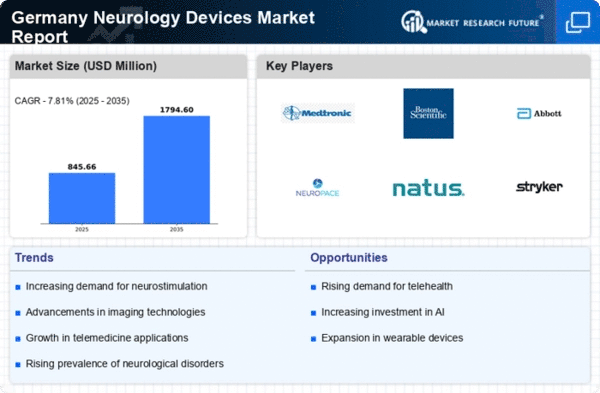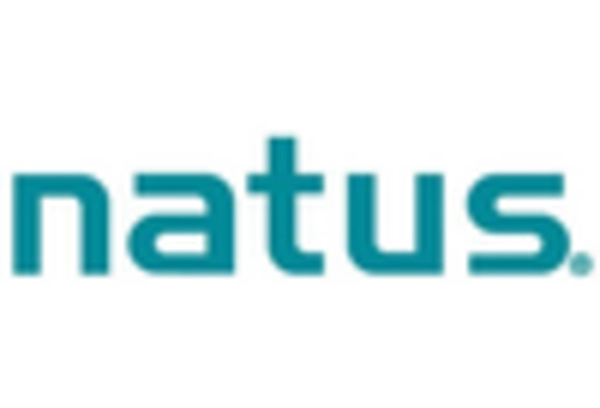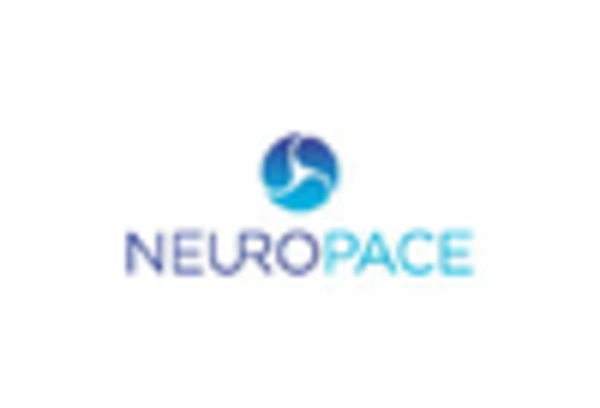Growing Awareness and Education
Growing awareness and education regarding neurological disorders are significantly impacting the neurology devices market in Germany. Public health campaigns and educational programs are increasing knowledge about the symptoms and treatment options for various neurological conditions. This heightened awareness is leading to earlier diagnosis and treatment, which in turn drives demand for neurology devices. Furthermore, healthcare professionals are receiving enhanced training on the latest technologies and treatment modalities, ensuring that they are well-equipped to utilize advanced devices effectively. As the population becomes more informed about neurological health, the neurology devices market is expected to expand, as patients seek out innovative solutions for their conditions.
Government Initiatives and Funding
Government initiatives and funding play a pivotal role in shaping the neurology devices market in Germany. The German government has implemented various programs aimed at enhancing healthcare infrastructure and promoting the development of medical technologies. For example, the Medical Devices Act encourages innovation and ensures that new devices meet safety and efficacy standards. Additionally, funding opportunities through grants and subsidies are available for companies developing neurology devices. These initiatives not only support the growth of the market but also foster a competitive environment that encourages the introduction of novel products. As a result, the neurology devices market is likely to benefit from increased investment and innovation driven by government support.
Investment in Research and Development
Investment in research and development (R&D) within the neurology devices market is crucial for fostering innovation and enhancing treatment options. In Germany, public and private sectors are increasingly allocating funds to develop cutting-edge technologies, such as wearable devices and advanced neuroimaging systems. The German government has committed over €1 billion to support neuroscience research, which is expected to yield breakthroughs in device efficacy and patient outcomes. This focus on R&D not only stimulates the market but also encourages collaboration between academic institutions and industry players. As a result, the neurology devices market is likely to witness a surge in novel products that address unmet medical needs, thereby driving growth and improving patient care.
Technological Integration in Healthcare
The integration of advanced technologies into healthcare systems is transforming the neurology devices market in Germany. The adoption of artificial intelligence (AI), machine learning, and telemedicine is enhancing diagnostic accuracy and treatment efficiency. For instance, AI algorithms are being utilized to analyze neuroimaging data, leading to quicker and more precise diagnoses. Additionally, telemedicine platforms are facilitating remote monitoring of patients with neurological conditions, which is particularly beneficial in rural areas. This technological integration not only improves patient outcomes but also streamlines healthcare processes, making it a significant driver for the neurology devices market. As healthcare providers increasingly embrace these innovations, the demand for sophisticated neurology devices is expected to rise.
Rising Incidence of Neurological Disorders
The increasing prevalence of neurological disorders in Germany is a primary driver for the neurology devices market. Conditions such as Alzheimer's disease, Parkinson's disease, and multiple sclerosis are becoming more common, with estimates suggesting that around 1.6 million people in Germany are affected by these disorders. This growing patient population necessitates advanced diagnostic and therapeutic devices, thereby propelling market growth. The demand for innovative solutions, including neurostimulation devices and imaging technologies, is likely to rise as healthcare providers seek effective treatments. Furthermore, the economic burden associated with these conditions, estimated at €100 billion annually, underscores the urgency for improved neurology devices, making this a critical factor in the market's expansion.

















